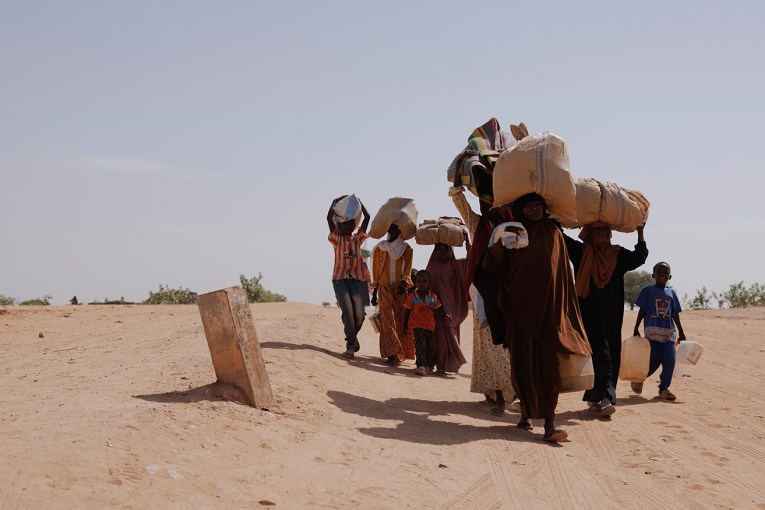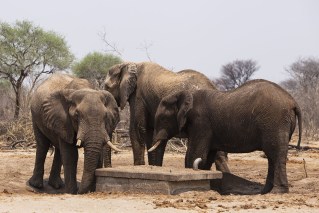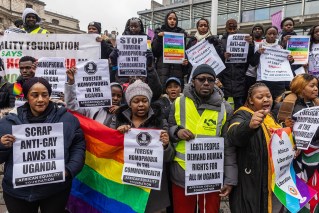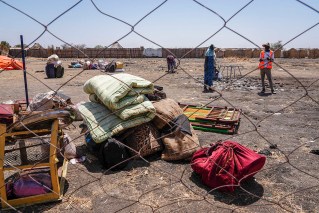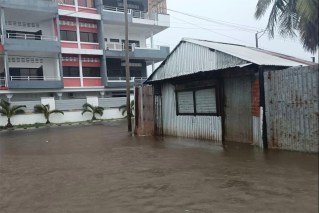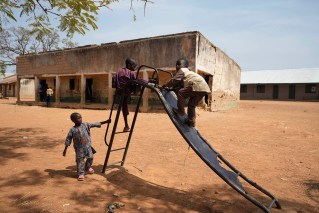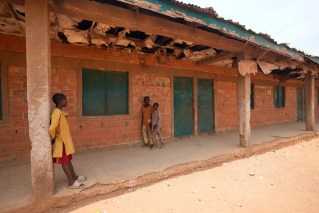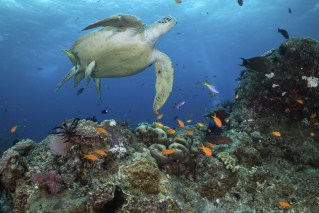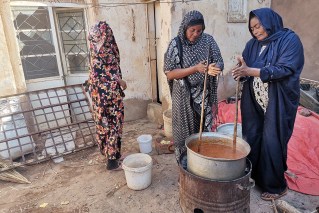Guinea soldiers say they have seized power
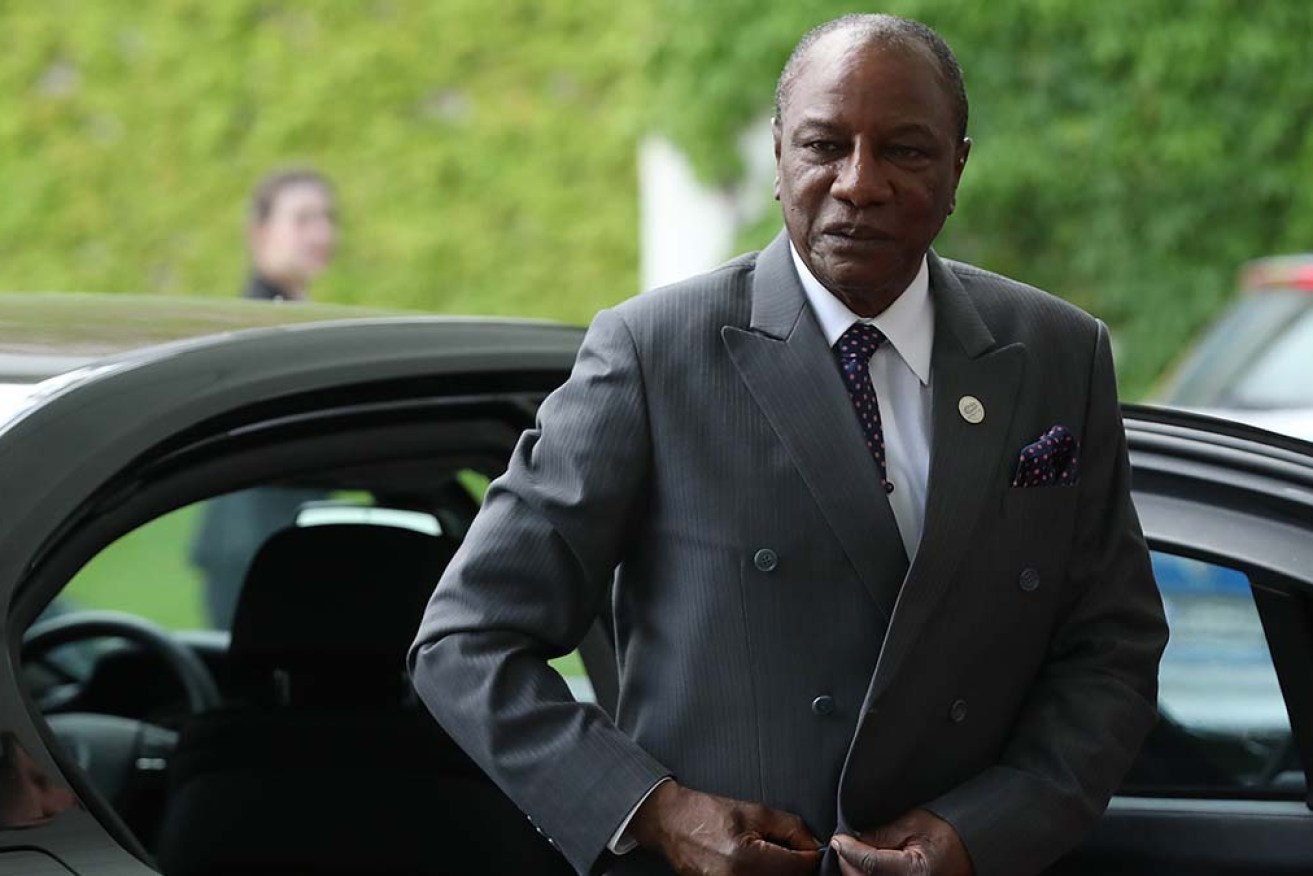
The junta that have seized power in Guinea say President Alpha Conde has not been harmed. Photo: Getty
Special forces soldiers have apparently ousted Guinea’s long-serving President Alpha Conde, telling the West African country they had dissolved its government and constitution and closed its land and air borders.
As the United Nations and Nigeria, the region’s dominant power, condemned any takeover by force, the elite army unit’s head, Mamady Doumbouya, said “poverty and endemic corruption” had driven his forces to remove Conde from office.
“We have dissolved government and institutions,” Doumbouya said on state television, draped in Guinea’s flag and surrounded by eight other armed soldiers.
“We are going to rewrite a constitution together.”
The mutinous soldiers vowed to restore democracy and called themselves the National Rally and Development Committee (CNRD).
Gunfire erupted and fighting broke out near the presidential palace in the capital Conakry on Sunday morning.
Hours later, videos shared on social media, which Reuters could not immediately authenticate, showed Conde in a room surrounded by army special forces.
The soldiers said on Sunday that Conde was not harmed, his wellbeing was guaranteed and he was being given access to his doctors.
The group of special forces soldiers said regional governors were replaced by military commanders.
Outgoing ministers and heads of institutions were invited to a meeting on Monday morning in parliament, they said in a statement read on the state broadcaster.
“Any failure to attend will be considered as a rebellion against the CNRD,” the group said.
Conde won a third term in October after changing the constitution to allow him to stand again.
That led to violent protests from the opposition, and in recent weeks the government has sharply increased taxes to replenish state coffers and raised the price of fuel by 20 per cent, causing widespread frustration.
By Sunday evening it was not clear if Doumbouya had seized total control, with the defence ministry having issued a statement saying an attack on the presidential palace had been repelled.
But United Nations Secretary General Antonio Guterres said he strongly condemned “any takeover of the government by force” and called for Conde’s immediate release.
Nigeria’s foreign ministry said Guinea’s “apparent coup d’etat” violated Economic Community of West African States (ECOWAS) rules and called for the restitution of constitutional order.
Videos shared on social media had earlier shown military vehicles patrolling Conakry and one military source said the only bridge connecting the mainland to the Kaloum neighbourhood, where the palace and most government ministries are located, had been sealed off.
In the capital, residents began venturing back onto the streets during the afternoon to celebrate the uprising’s apparent success.
A Reuters witness saw pick-up trucks and military vehicles accompanied by motorcyclists honking their horns and cheering onlookers.
“Guinea is free! Bravo,” a woman shouted from her balcony.
Alexis Arieff, at the United States Congressional Research Service, said that, while mutinies and coups were nothing new in west Africa, the region had had “major democratic backsliding” in recent years.
Both Conde and Ivory Coast’s leader have moved the legislative goalposts to extend the clock on their presidencies in the past year while Mali has experienced two military coups and Chad one.
Guinea has had sustained economic growth during Conde’s decade in power thanks to its bauxite, iron ore, gold and diamond wealth.
But few of its citizens have seen the benefits and critics say his government has used restrictive criminal laws to discourage dissent while ethnic divisions and endemic graft have sharpened political rivalries.
“While the president was proclaiming everywhere that he wanted to govern differently by annihilating corruption, the embezzlement of public funds increased. The new rich were taunting us,” Alassane Diallo, a resident of Conakry, told Reuters.
“It is all this that made it easier for the military.”
-AAP
